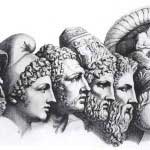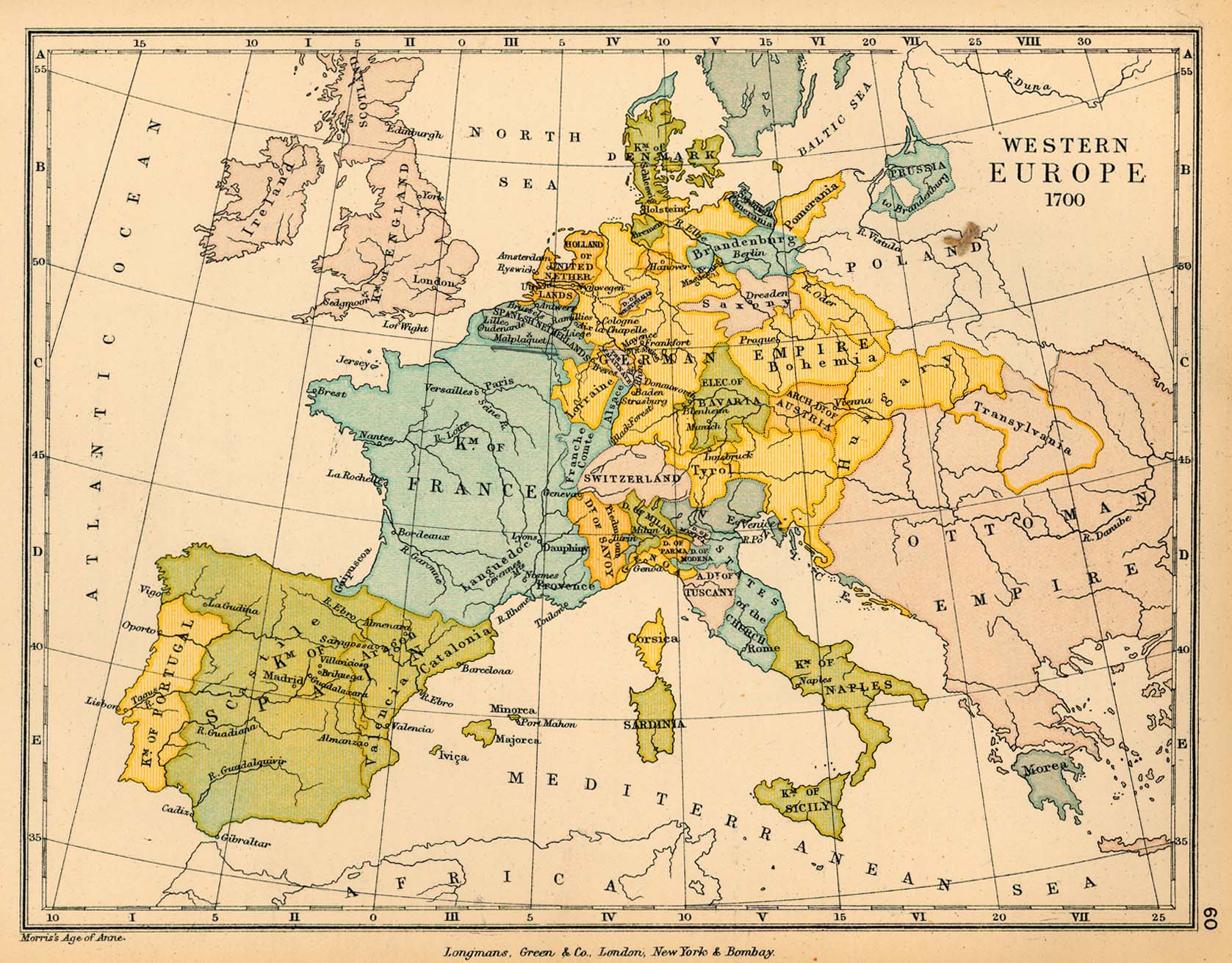
=By= Gaither Stewart
(Rome)
Hubris referred to actions that humiliated the victim for the pleasure of the abuser. In modern usage, hubris means extreme pride, a loss of contact with reality and an overestimation of one’s own capabilities, usually of persons in positions of power. Political writers apply it also to groups and in a special way to the United States of America and its leaders. Personally I try to avoid words which are being widely used, sometimes, it seems, at random. When I use the word hubris I have in mind the meaning of arrogance; in any case I intend a despicable quality.
Though ancient Greeks as a rule applied these dramatic words to the individual—Antigone’s flaw was her stubborn loyalty for which she paid with her life—we today apply these words also to entire societies or nations. We can label Europe’s hubris its Eurocentrism; its hamartia (for which the ancient Greeks would perhaps punish it collectively), is its destructive nationalisms on the one hand, and its contemporary subservience to America on the other.

Among the faint signs of hope for political survival of this Europe, at least, are the decreasing number of countries with majority parties and the rise of faintly anti-systemic movements and political parties and/or leaders, such as Syriza in Greece and the Labourite Corbyn in the United Kingdom
After post-WWII Italy established the multiparty model (based on Weimar in post-WWI in Germany with its 15 parties), today we have also Spain abandoning the two-party system and the new center-left PODEMOS stepping onto front stage. Here and there across the sub-continent, populist anti-political movements are suddenly born and rapidly emerge from the debris and ashes piling up around the crumbling traditional political parties, which, in their unjustified hubris, lose once solid pillars one by one, faster and faster, louder and louder the din, as they disintegrate more each day, each week, each month, and sink deeper into a dark sticky morass.
Meanwhile, citizens who no longer feel protected—much less represented—by the political class desert the vote and the heretofore political class. Why is that? How did it come about? The English poet Percy Shelley asked the same 200 years ago: “Is public virtue dead?—is courage gone?’” One hundred years later, the German, Walter Benjamin, answered: “For never has experience been contradicted more thoroughly than moral experience by those in power.”
Or, the disoriented citizens, still brainwashed, vote, helter-skelter, at random, for the lesser evil, ALSO, and still a majority, though rapidly decreasing, we find naïvely fanatic electors who continue to cling to the electoral process like to a life jacket on a sinking ship to change things and turn out at the poll stations to vote for the new anti-politicals or the super nationalists or extremists of Right and Left as for example:
Leftist PODEMOS in Spain,
Centrist FIVE STAR MOVEMENT in Italy,
Extreme rightwing FRONT NATIONAL in France,
Leftwing GREENS or DIE LINKE in Germany
Rightwing populist FREEDOM PARTY OF AUSTRIA
Leftist GREENS in Finland
One of the several rightwing conservative parties in Poland
Neo-Fascists in Hungary
Fascists and Nazis in Ukraine
Clear ideologies? Nada. Nineteenth and Twentieth century myths! Workers rights, heath care, care for the aged, for the unemployed and homeless, for the socially excluded classes? Zero.
Away with the old. Bring on the new.
We ask what is the new? We are right to wonder. Analysts too search for a handle. Is the politically new a party or a movement? Is it Right or Left? Populist? Apolitical?
Spaniards just turned out at the polls in record numbers—maybe in one last desperate attempt to save something of the familiar old two-party system. Or maybe to say NO to the existing system. Spain voted. No one won. The conservative Popular Party got the most votes but not enough to govern, not even in a potential coalition with the far right party of Los Ciudadanos, The Citizens. The second of the heretofore two-party tandem, the Socialist Party of Spanish Workers (PSOE), lost; that is, it got fewer votes than the Populars. And the New? Podemos, the brand new “non-ideological party” emerged as the real victor albeit with a few votes less than the “old” Socialist Party. No one party has a majority. The nearly powerless King, of all people, must now decide who to charge to search for a new kind of majority. Quo vadis, Espana? No one knows.
SO IS THE EUROPEAN UNION FALLING APART?
What with all the tensions, dissension, the many different forms of government (Or non-government) from fascist to extreme rightist nationalism to populist to moderate socialist to leftist socialist, the EU should be crumbling. Perhaps it is, but I do not believe it will happen … not yet. Europe has too much to lose by abandonment now.However, as one of the consequences of America’s imperialistic actions throughout the world grave splits mark the European Union. These splits threaten to break up the union of 27 nations and return Europe to the confusing jigsaw puzzle of small separate nations, which in any case would be lost in the era of planetary unions, while nonetheless remaining totally subservient to America.
TWO COUNTRIES—Poland and Italy
The extreme right government of Poland is spreading dissension in the EU. Tensions reached the culmination when the present alternating President of the EU Council, the Polish political leader, Donald Tusk, rammed through the EU extension of sanctions against Russia. Moreover, the EU Commission opposes the new Polish far-right government’s attempts to change the Polish Constitution in order to be able to enact the laws and policies it desires. Many Commission members opine that if that happens Poland’s voting rights in the EU should be suspended. With 38% of the vote the Polish Law and Justice Party won an absolute parliamentary majority. It aims at control over the Constitutional Court and the media.
Four things should be remembered: Adolf Hitler established his dictatorship with 43% of the vote, Poland borders on Ukraine, it is very hostile toward Russia and is very friendly with the USA.
Today at year’s end conflict governs relations between Italy and the EU leaders (not elected by the people) of economic Europe. A battle between Italian Prime Minister Matteo Renzi and the EU Commission and German Chancellor Angela Merkel rages on three fronts: banks and the European banking system, state support for failing big industry and Italy’s national deficit (percentage wise similar to that of the USA). Moreover, Italy opposes military intervention in Syria.
Pravda of December 22 published an interview with an Italian politician of Silvio Berlusconi’s Forza Italia Party, Fabrizio Bertot, about Russo-Italian relations. Bertot: the economy of Russia is perfectly complementary to our economy. Russia has a big market and large oil and gas reserves. In Italy, we know how to make many products. The ‘made in Italy’ label is respected, and we need a market like yours. At the same time we need energy, because ours is insufficient. This complementary relationship needs an incentive. Sadly, this is not in the interest of the USA. We must discuss this within the EU and maybe change completely the EU and its institutions.”
TIME IS OUT OF WHACK
This Russo-Italian relationship reflects the atmosphere among people across Europe. Perplexity, indecision, confusion, disorientation. Perplexity about what to do to better one’s own situation. Indecision about for whom or for what to vote. Confusion about nationality: for example, Italian first, European second? Or the reverse? Disorientation about the form of society: social or individualistic?The chief competitions today are between system and anti-system, between nationalism and internationalism.
Consequently, planning for the future seems futile. For Europeans time in general seems out of whack. Never has the present seemed more a time of transition. For the rich and the powerful 1%, time perhaps seems to stand still. For them, the hands of the clock move slowly and sometimes action seems truant … or they wish it were, so that their good things would last forever. And fuck the rest. Nuclear war and destruction of our planet hardly concerns them, no more than Syrian children fleeing the bloody war drowning in the stormy winter waters of the Aegean Sea. In reality, we, the 99%, know it is as the song recalls: time waits for no one.
The less fortunate too stand as with one foot lifted now toward a factory gate, now to board a tram, hands frozen, afraid of touching the uncertain future. For still others, time itself is clearly the enemy. Time is filled with tension and seems ready to explode into a still unwritten direction. Everyone knows that time means change. But what change is the question.
The most problematic group are Europe’s thinking people, the people still socially and politically aware, intellectuals, academics, journalists. For they know that this is a time when anything can happen. The outrageous can occur. To think that World War III can explode in the American-created, fascist Ukraine two hours from Rome or Paris is mind-boggling.
And, as Tony Cartalucci noted on this site, beyond Ukraine similar scenarios are developing, where as USA/NATO expands closer and closer to Russia’s borders, it is finding it increasingly difficult to find allies who are not fascists or nazis. Or something worse.
Other Europeans—though their number is decreasing at an alarming rate—hold onto legality: naively some still believe that the next elections can change things. The present will end, they hope. Normal time will resume. Things will return to what they once were. A better future can begin.
The subject of America’s imperialistic footprint across the world as outlined above lends itself to a dialectical analysis, as, in an abbreviated form, I have undertaken here:
America’s hubris has spawned the thesis of the nation’s purported exceptionalism and, consequently—because of its wealth, power and way of life—its self-proclaimed god-blessed destiny to dominate the entire planet.
The antithesis of America’s over-estimation of its rights and its capabilities is the rejection of uni-polar domination by vast parts of the rest of the world. For example, the Eurasian pole of Earth’s Heartland headed by Russia and China stands diametrically (antithetically) opposed to U.S. hegemony.
The synthesis of the two variants would require America’s cognizance of the reality that the consequence of its blind insistence on world domination will be universal conflagration and the probable extinction of the human species. America must join the rest of mankind. As a first step, America must show genuine atonement for the ills its hamartia—i.e. evil conviction of its exceptionalism—has wrought on mankind.
In such a way, that is if America comes to its senses and recognizes the realities of a multi-polar world living in peace, a new synthesis of the drives and destinies of peoples of the world for a rational world order can be achieved.
As Percy Shelley at age 18 wrote in the last eight lines of his Poetical Essay on the Existing State of things, a work lost for two hundred years and re-found in 2006:
Man must assert his native rights, must say
We take from Monarchs’ hand the granted sway;
Oppressive law no more shall power retain,
Peace, love, and concord, once shall rule again,
And heal the anguish of a suffering world;
Then, then shall things, which now confusedly hurled,
Seem Chaos, be resolved to order’s sway,
And errors night be turned to virtue’s day.—
Source


